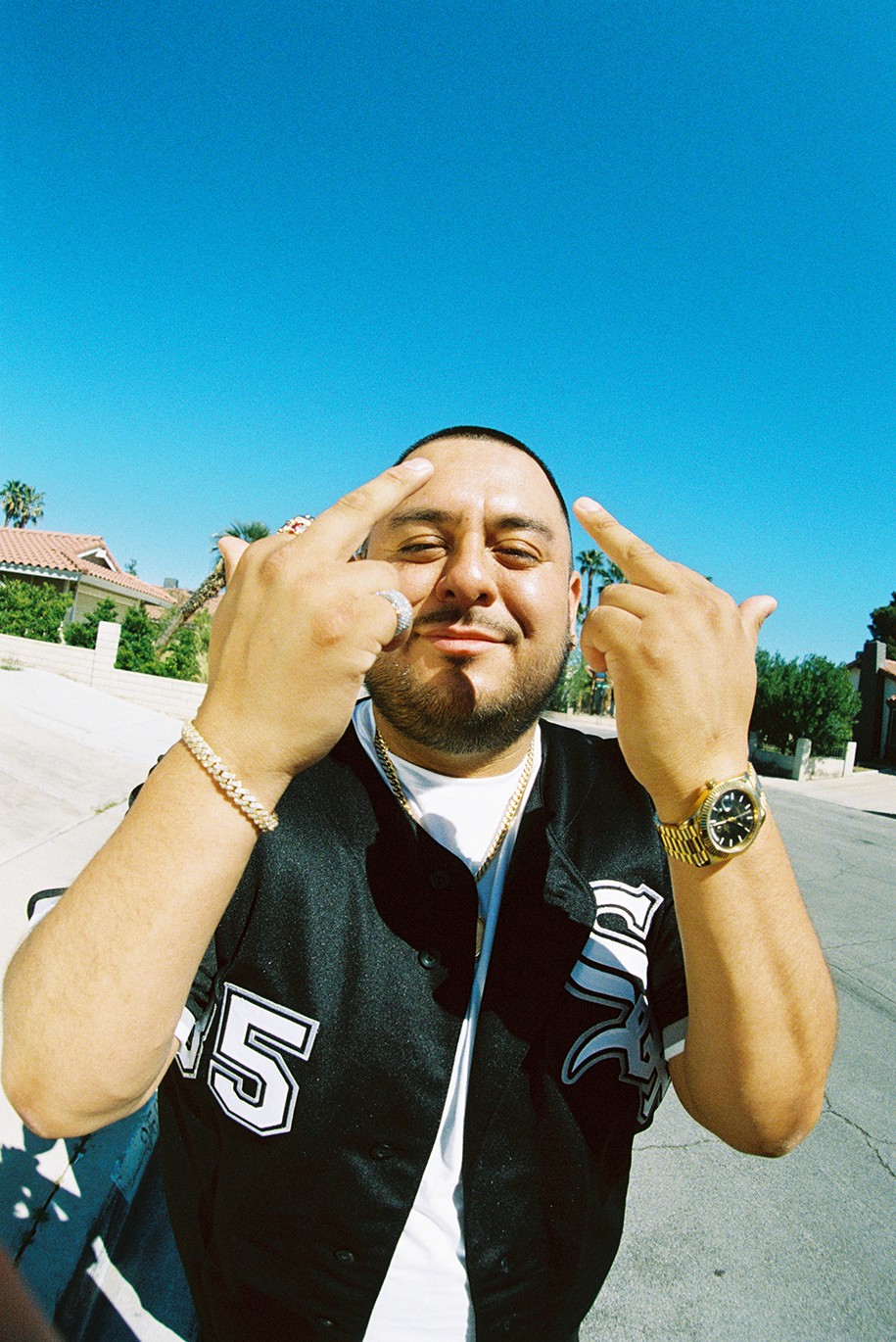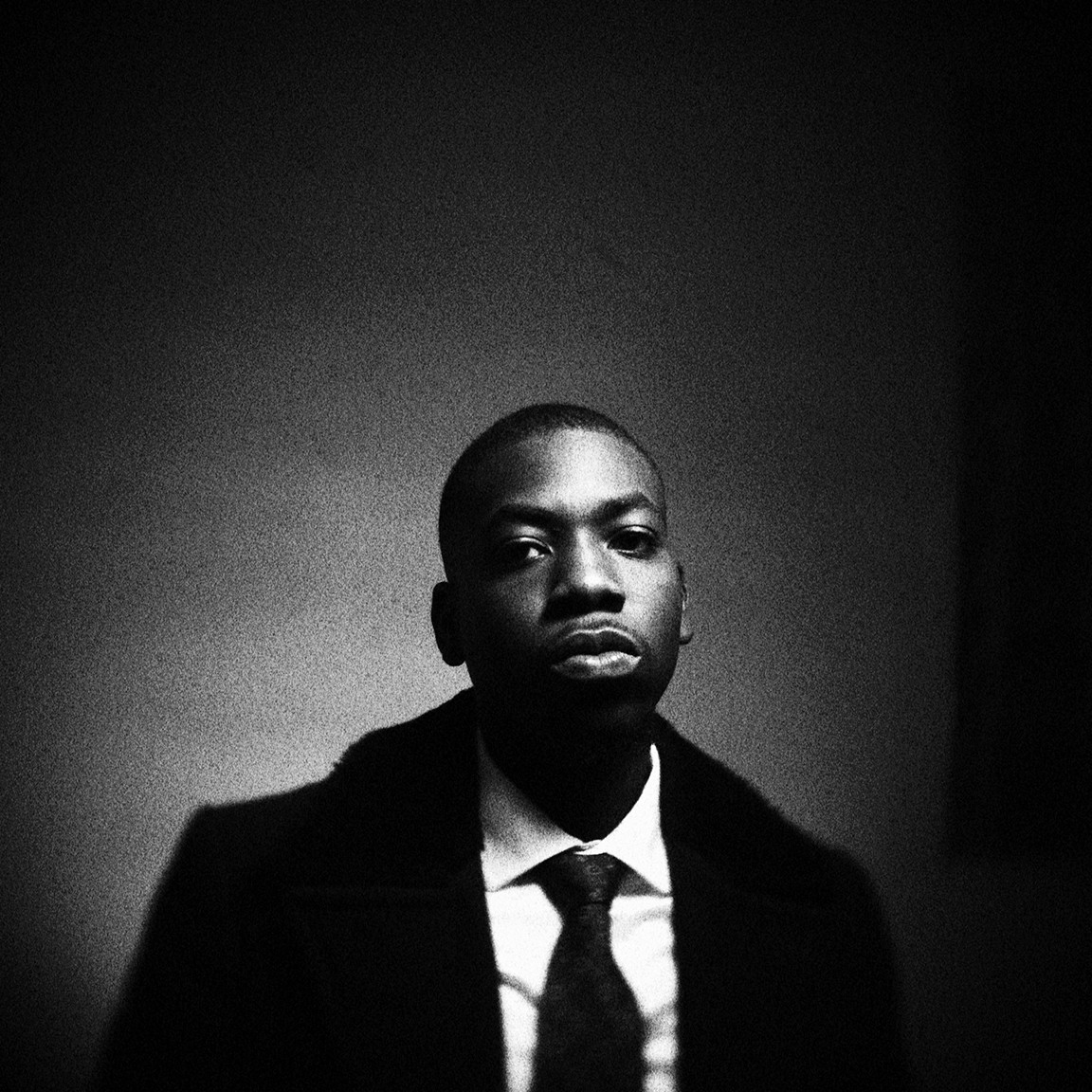Exclusive Interview
Sep 4, 2024
Produced by: Andrej Aroch
Edited by: Rudy Manger
UV Killin Em – From Guitar Loops to Hits with Drake & Sleepy Hallow
UV Killin Em is an exceptional music producer whose unique blend of classic rock influences and modern hip-hop has set him apart in the industry. Starting with a passion for music at a young age, which led him to move from Israel to LA, UV has crafted hit tracks like Sleepy Hallow's "2055" and Drake’s "Rich Baby Daddy." His innovative sound and dedication have made a significant impact on the music scene. In this exclusive interview with Studio Talks, we explore his creative process, career milestones, and inspiring rise in the industry.
“The more effort you put in, the luckier you get”
- UV Killin Em
Do you think it's important to know how to play an instrument if you want to become a music producer, or can you manage doing it all through a PC?
I think you can definitely manage just through a PC. There are VSTs that can emulate sounds incredibly well, like Ample Guitar and all the Kontakt banks. It's very easy to achieve an authentic sound, even if you're just using a MIDI keyboard. However, I do think that learning an instrument, especially something like the guitar, is very useful, even just for training your ear and understanding which notes go well together. Even if you don't know music theory, it will still, in my opinion, significantly improve your production skills.
When did you first realize you wanted to be a music producer?
I fell in love with music when I was around 12 years old. I still remember the first two CDs I bought: OutKast's Speakerboxxx/The Love Below and Linkin Park's Meteora. At the same time, my brother was really into rap, like Eminem, and also rock, like Sum 41 and Limp Bizkit. So, around that time, I really started falling in love with music.
Over the years, I became more fascinated with the actual production of music—the guitar, the sounds. When I was around 16, I started messing around with Fruity Loops. None of my friends were into production or singing, so it was mostly just me. However, I did make some funny tracks with friends, and that kind of sparked my interest in music production. It became more serious around 22 or 23.
It wasn't planned; I didn't set out to become a producer. I went to business management school and took a double major with musicology, which is more about the study of music theory and history, rather than creating music. By the time I was in my last semester, I realized I didn't want to do anything but make music. So, I started locking myself in my room, not going out with friends, downloaded Ableton, and worked on improving my skills, including my guitar recording. By the time I was 26 or 27, I knew I was going to be a producer.
What was your initial process for finding artists for your beats?
A lot of it started with BeatStars—uploading beats on BeatStars and YouTube. But the main thing I did in the beginning was go on Instagram and follow all the artists and producers I wanted to work with. I’d keep an eye on their stories because sometimes they would post something like "send beats to" with an email address. That’s how I began sending my beats out. Eventually, some artists started reaching out to me, asking for beats through my publisher and management. It's important to have multiple ways to get your work out there.

Did you ever imagine this song being such a big success?
I didn't think it would be that massive. A lot of things happened simultaneously that really helped it take off. One of the coolest things was how it became a popular theme song for Fortnite montages. Everyone who wanted to upload their Fortnite montage chose that song, which really elevated its popularity. It’s also cool because they eventually included the song in Fortnite last year, which kind of brought everything full circle. Of course, TikTok played a huge role in blowing up the song as well.
A funny story is that the song was leaked on YouTube in a different version. I can't remember the title, but it was out for about four months before the official release, and it got over a million views. When I saw that, I thought, "Okay, if this song actually comes out, it's probably going to go crazy," just because the leak was already getting so many views.
You made the move from Israel to Los Angeles. What motivated this decision?
I’m lucky enough to have been born in New York. I moved to Israel when I was about five and a half, so I also have American citizenship. When I decided I wanted to be a producer, I felt that moving to America, especially to LA, was the right decision. Israel has a music scene, but it’s very small, especially in hip hop, and it’s much more gate-kept. So I thought, "Okay, I have some money saved up; I might as well try and see what happens out here."
It was scary—I remember thinking on the flight to LA that I might buy a ticket back home as soon as I landed because I didn’t really know anybody. I knew a few people through Instagram, but it was definitely an adventure. The timing turned out to be perfect because "2055" came out about four months after I moved, which led to my management deal and opened doors for me. The motivation was always to go big or go home, and that’s what drove me to make the move.
Do you believe it’s possible to have a successful career as a hip-hop producer even if you’re not based in traditional hip-hop areas like LA?
I think it’s possible. It depends on what you want to achieve in your career. If you’re not focused on doing sessions and being actively involved in the room, you can definitely succeed from anywhere. For example, there are a lot of great producers in Germany who stay and work there. Also, you can send your work to anyone, anywhere.
However, if you want to be actively involved—especially with writing, creating hooks, or working on melodies—being in a hub is important. For me, moving out here was the best decision I’ve ever made. I might have eventually reached where I am now if I had stayed back home, but it would have taken a lot longer.
Another song you produced that I want to talk about is 'Rich Baby Daddy' by Drake, Sexyy Red, and SZA. Can you tell us about your contribution to this song and how the collaboration came together?
I made that track with my friend Shiv, who is part of the duo The Loud Pack. It's funny because when we first made it, I didn't immediately think, “Okay, this is perfect for Drake” or anything like that. I was at Shiv's house, and we were just messing around. He has a Prophet synth, so we were playing around with different ideas on it, and one of those ideas became the track.
This was back in April of last year, I think. Fast forward to September, I went back to the East Coast and saw Shiv again. He gave me an update that Dougie, an amazing songwriter, had mentioned that we might have something with Drake, but it was still kind of ambiguous. I tried not to think about it too much because, in the music industry, you often hear things about projects you're involved in that don’t always come to fruition.
The album eventually got delayed; it was supposed to be released in September. So then I started thinking, “Okay, maybe there is a chance it will make the album”. Fast forward to the day before the album dropped: I got a FaceTime from both Shiv and Dougie, who shared the news that our track was going to be on the album. I was still having a hard time believing it, so I even had a check-up call with my management team but didn’t mention it because I wanted more confirmation that it was actually happening. A few hours later, they started asking for paperwork and everything, so that’s when I finally told my manager. It was an amazing day.
What’s your opinion on using AI in music production and the music industry in general? Do you think it will change the game in the coming years?
I've been having these conversations with my friends about AI. My opinion has changed a bit over the past few months. I used to be very against using AI—if you had asked me a few months ago, I would have given you a different answer. But now, I see it as a tool that can really help with the final product, especially if you want to use an instrument or a voice that you can't create yourself. It’s very useful in that sense.
I think there are ways to use AI effectively. I’m not a fan of just typing something into an AI and saying, “Okay, now we have a song.” I prefer taking parts of the AI-generated idea and building on top of it, similar to using Splice or getting a sample from a pack. I can't predict the future, but I think the next five years will be critical in determining how the industry accepts AI and how it evolves. It could turn into something that’s difficult to control, and who knows—maybe in five years, producers won’t even be necessary. There have already been lawsuits from record companies and labels against AI platforms like Suno. So it’s not just up to the producers; labels have a say too. We’ll see what happens—exciting times, though.
Can you share some of the biggest challenges you've faced during your career and how you've managed to overcome them?
I think a lot of self-doubt is a major challenge in any creative field, especially because what we create isn’t judged empirically; it's highly subjective. You have to learn to disconnect from that while you're creating. You can't let those thoughts interfere with the process, so staying creative is definitely a challenge. I make it a point to take at least one day off during the weekend to go outside—whether it’s going to the beach or hiking—to get inspired.
Being so far away from home has also been very challenging for me. I try to go back at least once a year, sometimes twice, because I’m very family-oriented. It’s hard being away from family and friends. The first few years after moving out here were very challenging—making new friends, not knowing much about the industry, and trying to avoid getting taken advantage of. Those have been some of the main challenges I've faced.
What advice would you give to young, aspiring producers looking to make a name for themselves in the current state of the music industry?
Don’t be afraid to share your ideas. When I was back home in Israel, I started by uploading my work to Reddit and posting in different subreddits to get feedback on what I could improve. Even if it was just one upvote, it made me feel like, “Wow, I can do this.” Share your work with people and use the internet to your advantage; it’s an amazing resource. Reach out to people you want to work with, even if you think they won’t respond—you never know what might happen.
Just keep at it. Even if nothing seems to be happening yet, continue working on your craft. I believe that the more effort you put in, the luckier you get. Keep putting out new ideas and working on your skills. That’s the best advice I can give.
Follow UV Killin Em on Instagram: @uv_killin_em
More Blog Posts
See our latest blogs















